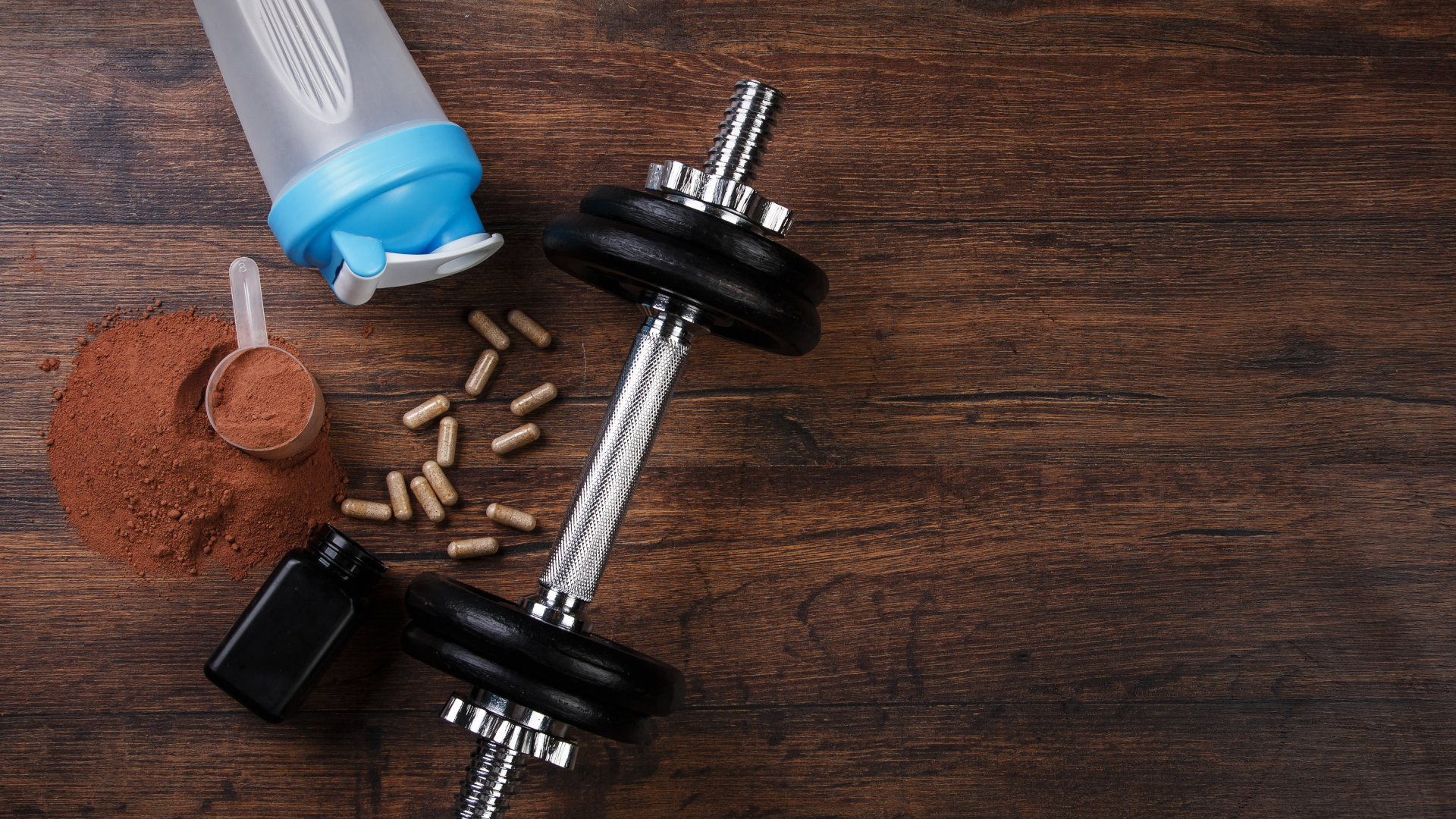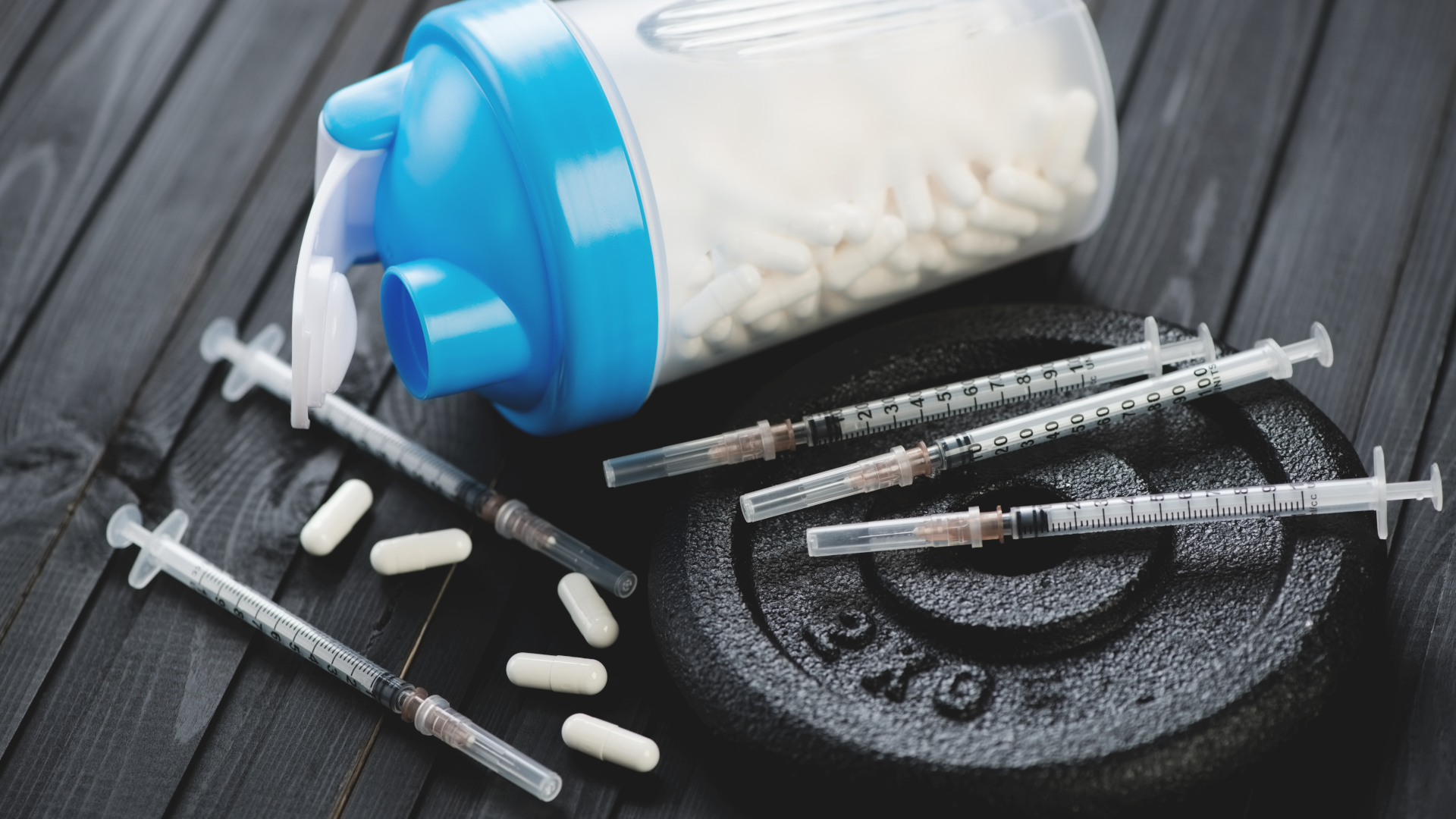Are you thinking of adding creatine pills to your supplement regime? Maybe you’re already seeing results from them but want to know if powder would be even better. Or just want to learn a little more about creatine and its effects on the body.
If you want to get the best results from creatine supplementation, then it’s crucial to know how to take it. You can get it in several different forms and all have pros and cons. Taking the wrong one for your needs may mean it’s not as effective as you’d hoped. But when you know what you’re doing, the right approach can transform your strength and lean muscle gains.
In this article, we compare creatine pills vs powder so that you’re armed with all the info you need to choose the right supplement for your needs.
What is Creatine?

Creatine is one of the most popular fitness supplements for gym goers. It’s been shown to increase strength, muscle mass, and sports performance on a consistent basis. Unlike many supplements that have only been validated in test conditions, creatine has been proven to work in real-world situations. This is why it’s a top pick for athletes, powerlifters, and gym fans around the world.
Creatine is a naturally occurring substance that’s found in our muscle cells. Its role is to help produce the energy needed for muscular movements such as lifting or HIIT. It does this by contributing to the production of adenosine triphosphate (ATP for short) which provides energy for muscles to contract. Your body can produce creatine by combining amino acids (glycine, methionine, and arginine) but this is affected by a number of factors. The amount of meat you consume, exercise you take part in, and hormone levels can all influence your creatine production.
What Are the Benefits of Taking Creatine?
The benefits of taking creatine include strength, fitness, and performance improvements. It’s renowned for promoting lean muscle gains that enable you to lift more as well as looking bigger. When it comes to boosting strength and muscle mass, taking creatine pills or powder can help in a number of ways…
-
Enables you to work harder – it increases available energy so that you can put more effort into your workouts which leads to greater muscle hypertrophy and better results.
Increases anabolic responses – taking creatine results in increased levels of muscle-building hormones such as IGF-1. - Reduces protein breakdown – so that less muscle is degraded and you can benefit from greater overall gains.
- Aids hydration – by increasing the water contained in the cells of your muscles, which can cause them to expand and lead to growth.
- Promotes growth signaling – so that satellite cells send the hypertrophy signals that stimulate muscle repair and growth after training.
- Reduces inhibitor levels – myostatin can hold back your muscle growth or stop it completely but creatine reduces this so that it doesn’t hold you back from reaching your potential.
Each of these aspects is beneficial on its own but together they deliver a powerful muscle-boosting combination. Creatine is one of the few supplements that supports the body on all of these levels, which makes it a fantastic way to get better results from your workout efforts.
Is Creatine Dangerous to Take?
No, creatine is completely safe to take. It’s one of the most thoroughly researched supplements available and has not been shown to pose any health dangers. By following the recommended dosage instructions you’ll be well within safety guidelines recommended by the FDA.
Some people associate creatine with cramps and dehydration but scientific studies haven’t found any link. In fact, some research indicates that it can actually be beneficial for these aspects when people are training in the heat.
However, if you have pre-existing conditions then it’s important to pay special attention to the safety instructions. People with kidney or liver diseases may have a harder time metabolizing it so consult a doctor before taking it if this is the case. Combining creatine with other medications or supplements can also lead to unwanted side effects so this is best avoided.
Types of Creatine Supplements

Creatine supplements usually contain creatine monohydrate, which is the most well-researched of the compound variations. Other forms include creatine phosphate, tri-creatine citrate (CrC), creatine pyruvate, and creatine with HMB, glutamine, and β-alanine. The two most popular forms of creatine supplements are pills and powder. Creatine pills are taken orally with liquids whereas creatine powder is mixed or blended into a drink.
Creatine Pills Vs Powder: Advantages and Disadvantages
You might be wondering which is better for achieving your training goals – creatine pills or powder? As long as you purchase reputable brands, then they’ll both contain adequate amounts of the compound to turbo-boost your results. But is one more readily absorbed than the other? And what are the practical implications? In this section, we compare creatine pills vs powder so that you can decide which is best.
Creatine Pills Pros and Cons
Taking tablets or pills is an easy way to increase your creatine levels. You can consume them alongside multi-vitamins which means they slot nicely into your existing routine. The pros of creatine pills are…
- Easy to transport
- No wastage
- Exact dosing measurements
Pills are easy to transport since there’s no liquid or loose powder that can be spilled. When you take a tablet, you know that you’ve consumed the entire thing (unlike powder which can often get stuck to the container). The best creatine pills contain a strict amount of the monohydrate form so that you can be confident you’ve ingested an adequate amount for your goals. However, the cons of creatine pills are…
- Higher purchase cost than powder
- Absorbed by the body more slowly
- Harder to combine with other complementary supplements
Pills can be more expensive than powder, with costs soon mounting up during the loading phase. Its compact form means that it takes longer for the body to digest and absorb, so you’ll have to take them earlier than powder. Creatine has also been found to be more effective when combined with carbohydrate and protein, but this can be hard to achieve with tablets.
Creatine Powder Pros and Cons
Taking creatine powder is popular with bodybuilders and gym fanatics. People who consume protein shakes will find it easy to incorporate this form into their existing pre or post-workout routine. The pros of creatine powder are…
- Cost-effective
- More readily absorbed than pills
- Easy to combine with other supplements for maximal results
Creatine powder is usually more affordable than tablets and absorbed more readily too. This gives you more bang for your buck in terms of cost-efficiency and results. It’s also easier to take in combination with carbohydrate or protein supplements, which may improve its overall effectiveness. However, the cons of creatine powder are…
- Trickier to transport
- More wastage than pills
- Potential for inaccurate dosing
You’ll need to take extra care when transporting powder to ensure it doesn’t spill everywhere. When mixed with liquid it’s common for some to get stuck around the container which inevitably leads to wastage. This can also mean that you’re consuming less creatine than intended which may have a negative impact on its effects.
We Recommend CRN-5!
Our creatine supplement is ultra-effective because it contains 5 sources of creatine (Creatine Monohydrate, Creatine Hydrochloride, Creatine Ethyl Ester, Creatine Citrate Pyruvate and Tri-Creatine Malate).
Each one absorbs at a different rate and effects your training slightly differently to give you maximum results. The key benefit of CRN-5 that you'll notice is an increase in power, especially on classic exercises like squats, bench press and deadlifts.
We also included key minerals like Potassium and Magnesium that are lost through sweat as you train. These minerals help you stay hydrated and enable you to keep going for longer in the gym.
Creatine Results – How Effective Is It?
Creatine is an incredibly effective supplement with a wealth of scientific research to back it up. It’s been shown to support muscle gain, strength improvements, and overall performance in a variety of different settings. Here’s an overview of the most common creatine results that people experience.
Muscle Mass
Creatine is considered the single most effective supplement for increasing muscle mass, even more so than protein. One large-scale review looked at research studies relating to 250 different health and fitness supplements. It found that creatine significantly increased lean muscle when combined with resistance training. This is backed up by numerous other scientific studies that demonstrate its effectiveness in this area.
Strength
Increasing muscle mass doesn’t automatically mean that strength is improved. There are several supplements that help to increase muscle size through water retention which means people bulk up but aren’t any stronger. However, creatine delivers on the strength aspect too by increasing the energy available for muscle action and the recovery phase. In a 3-month study involving weightlifters, those who consumed creatine saw a significant increase in their strength compared to those who didn’t.
Performance
Creatine has also been shown to improve performance involving short-bursts of exercise. This is because it supports ATP production which enables muscles to perform at peak-levels for longer. The effects have been observed in high-intensity activities such as sprinting but don’t seem to translate into endurance events.
Choosing the Best Creatine for Your Needs
Creatine is proven to aid muscle mass, strength, and performance. Choosing the best supplement option will often come down to personal preference. Some people hate pills and find them difficult to swallow. Others dislike the texture of powder, even when it’s thoroughly mixed into a shake. The important thing is to weigh up the pros and cons we’ve listed against your own criteria and then choose the option that’s right for you.
Over 299,434 purchases
Over 509,389 bottles sold
Over 30,563,340 pills taken









